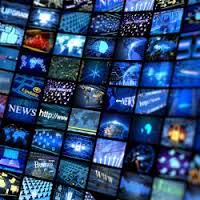
The first day at a Star Trek convention involves registration, figuring out where everything is, seeing the vendor room and booking photo ops. Once those things are settled, we really enjoy the wide variety of activities. I especially like the programs about the writing and production in the franchise. Michael Westmore did two interesting ones on design and makeup for cast members and aliens. Others focused on costuming and production design.
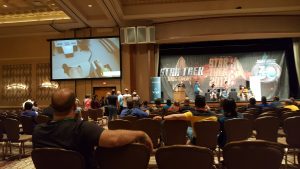
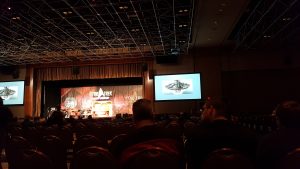
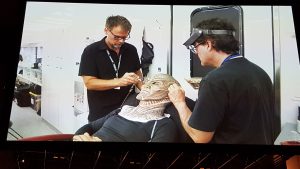
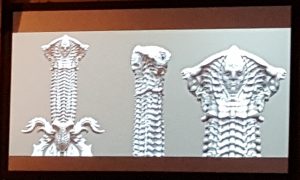
There were interviews with series writers and show-runners and lots interesting interviews with celebrities from the series and films. We were lucky to see Patrick Stewart because he doesn’t often make the conventions.

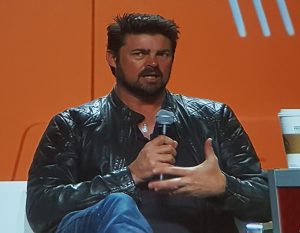
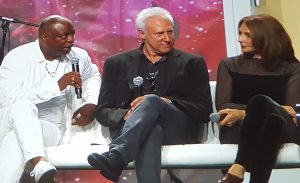
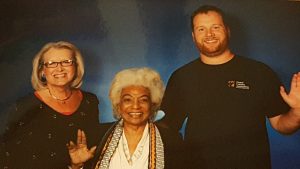
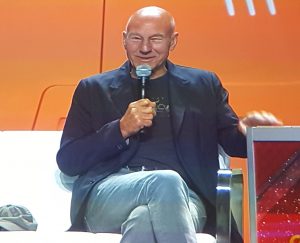
Cast interviews are big part of these conventions, especially in an anniversary year. William Shatner, Nichelle Nichols, George Takei, Patrick Stewart and most of The Next Generation cast were there. It’s lots of fun to see the actors, hear their stories and see how they interact with each other.
Attendees also have the opportunity for photos and autographs with cast members. William Shatner and others use this to raise money for the charities they support. Last year, at 50th Anniversary Convention, we met Michael Dorn and Brent Spiner. This year, we had our picture taken with William Shatner and Nichelle Nichols. These pictures are on my office wall along with the picture Patrick Stewart autographed.
A large exhibit featured the costumes, sets, props and make-up in the new Discovery series. The detail on all of these much more elaborate than previous series. Some were designed and produced using 3-D printing technology.
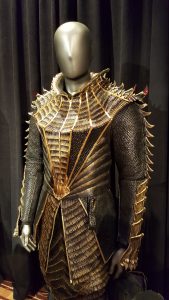

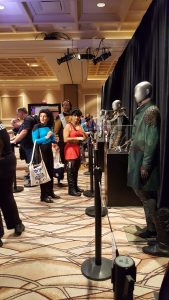
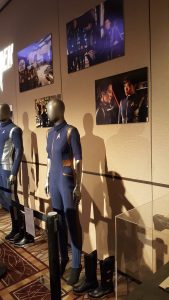
I used Star Trek in my classes since I began teaching more than 30 years ago. I filled a small notebook this time with information about the creation and production of the new Star Trek series, Discovery.
There were lots of people in costume and fans from all over the world. There was a sense of comradery, respect and belonging that felt more like church than a fan convention. These were people who share a vision is positive, diverse, expansive and exciting. Respect is foundational. At times there were crowds, lines, and complications, but only once in five days did I hear a cross word.
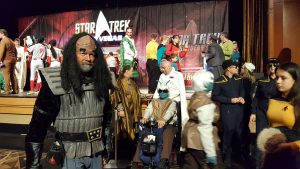


There are lots of interesting displays at the convention including a collection of art celebrating Star Trek: The Next Generation. One of my favorites was the restored set from the original series.
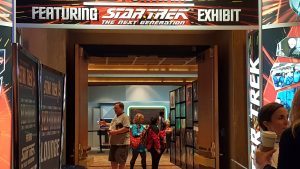
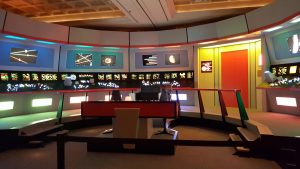
My husband Randy is not a Trekker. He would never choose a Star Trek Convention as vacation destination, but I would love him to go with me some time. It’s such a unique experience, and I’d love to share it with him. (Don’t hold your breath….)
I’m not sure when Chris and I will make another Star Trek trip, but I know there’s one in our future someday —maybe even with a next generation of McMullen Trekkers. Now that sounds like a plan!
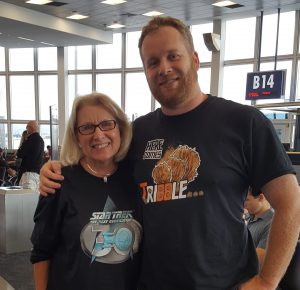
August 12, 2017





















